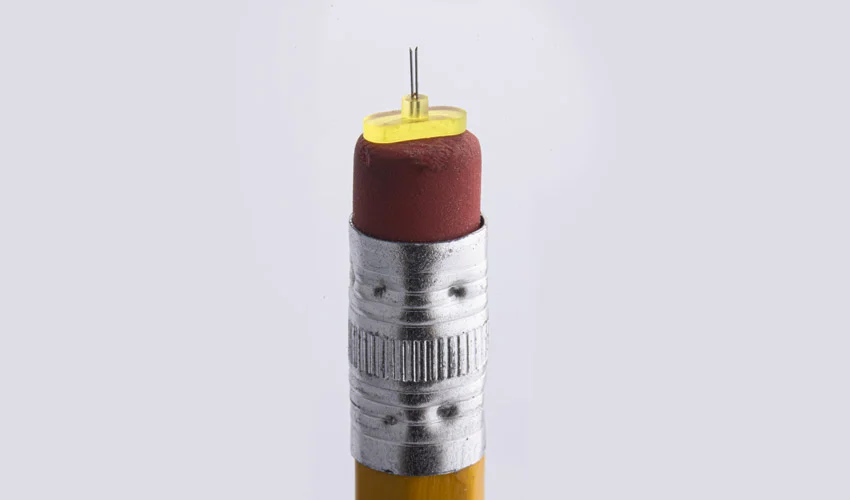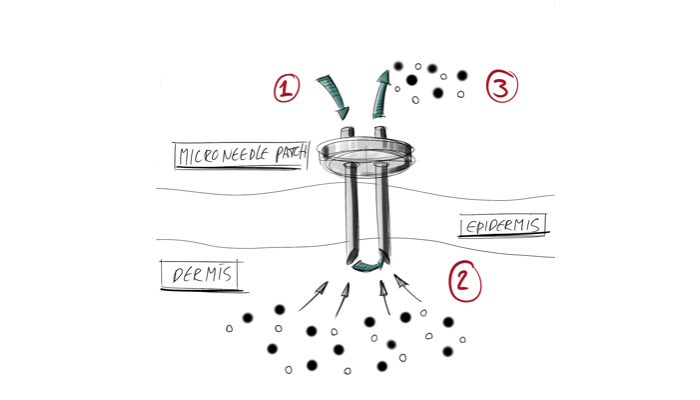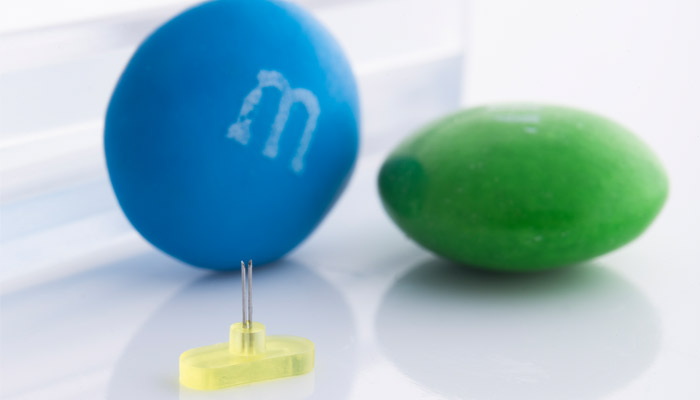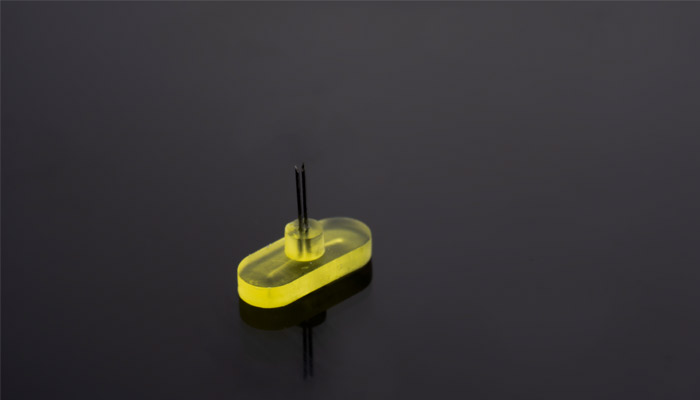
Rotterdam-based startup IMcoMET works within the medical sector, specializing within the growth of options to combat most cancers, significantly pores and skin most cancers. To do that, the corporate extracts interstitial fluid, crammed with biomarkers, from the pores and skin in a localized method, to check it and enhance dermatological analysis. The intention is to advance biomedical analysis and supply customized options. Moreover, to attain this aim, the start-up depends on 3D printing, and extra particularly on microprinting options from American producer Boston Micro Fabrication (BMF). Because of BMF’s 3D printers, IMcoMET is ready to develop microneedle expertise, enabling it to extract this well-known liquid in a exact, localized method.
The vast majority of analyses carried out on the human physique are carried out utilizing blood, involving invasive methods and outcomes which might be usually inconclusive as a result of coagulation. That is why different physique fluids are of curiosity, notably dermal interstitial fluid. This can be a fluid that circulates between tissue cells and incorporates quite a few biomarkers. More often than not, the fluid is extracted utilizing microneedles. And there are lots of various kinds of microneedles available on the market – for instance hole and porous, amongst others.

IMcoMet’s patented expertise in motion
Nonetheless, one of many challenges related to this methodology is the quantity of liquid extracted: most of those microneedles, that are inserted instantly into the pores and skin, don’t present a ample amount. Which means quite a few needles are required to attain the specified quantity, which isn’t the simplest or most nice methodology. That’s the place startup IMcoMET is available in: the intention was to develop a exact, minimally invasive gadget that would extract sufficient fluid in a single go, doing so in a extremely localized method.
Microneedles to Extract Exact Biomarkers
The primary era of microneedles developed by IMcoMET was produced within the conventional approach. Known as M-Duo Expertise, it consists of two needles linked to 2 tubes related to a micro peristaltic pump. Working in pairs, the primary needle injects a provider fluid and the opposite aspirates, executed concurrently. The system creates a loop wherein the fluid travels repeatedly. The liquid drawn in is due to this fact a mix of the provider fluid and the interstitial fluid. IMcoMET explains that this makes it potential to detect quite a few biomarkers resembling exosomes, proteins and DNA.
Alexandre Motta, the startup’s CTO, explains: “M-Duo Expertise extracts all soluble molecules across the needle insertion level. Our gadget is presently in medical trials, however we now wish to go one step additional. The intention is to design an excellent smaller gadget that may allow us to go even deeper.”
The miniaturization of this course of did, nevertheless, contain a lot of challenges. Firstly, the tubes used have to be related to the pump, thus necessitating a sure diameter to attach them. Nonetheless, the 2 needles used have to be shut sufficient to one another to work correctly. This meant having two impartial, parallel channels, solely 20 microns aside. However the best way to obtain this end result with out shedding precision?

BMF’s 3D-printed gadget
BMF Expertise for Even Greater Resolutions
That is the place IMcoMET found Boston Micro Fabrication’s 3D microprinting expertise. Based mostly on projection micro-stereolithography (PµSL), it might obtain very excessive print resolutions – between 2 and 50 microns – in addition to tolerances of between 10 and 25 microns. The expertise is used to fabricate the cap that holds the needles in place. This element additionally incorporates two 100-micron diameter channels, positioned simply 20 microns aside. They’re positioned in order that the tubes related to them run in a V-shape, every by itself facet.
Alexandre Motta continues: “Because of this expertise, we will alter our needles as we want – for instance, range the depth – and thus map the interstitial liquid.” He’s additionally assured in regards to the gadget’s larger-scale manufacturing part, because the microprinter’s printing plate allows a number of caps to be manufactured on the identical time. He concludes: “Boston Micro Fabrication’s expertise is good for the precision and determination we wish to obtain, the place the SLA course of can’t. It’s additionally far more inexpensive than nanoimprinting and allows fast scale-up. It’s a wonderful alternative for IMcoMET and we’re already growing different initiatives with the BMF groups.”

The cap contains two microneedles
Fascinated with BMF’s microprinting options? Don’t hesitate to contact their groups by clicking HERE.
What do you consider the gadget developed by IMcoMET? Tell us in a remark under or on our LinkedIn, Fb, and Twitter pages! Don’t overlook to enroll in our free weekly publication right here, the most recent 3D printing information straight to your inbox! You can too discover all our movies on our YouTube channel.
*All Picture Credit: Boston Micro Fabrication




